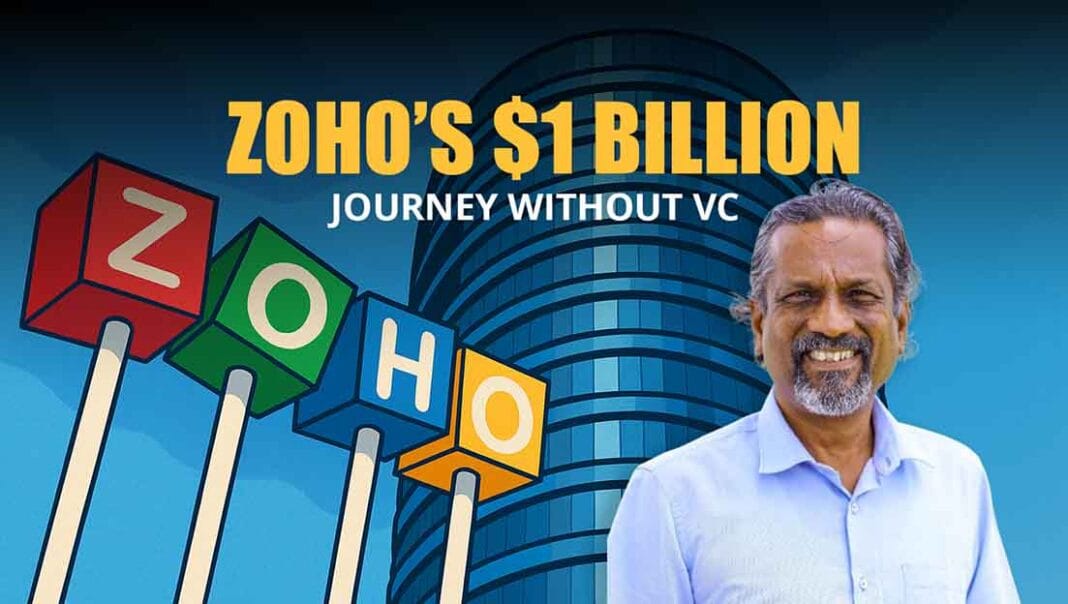In an age where most startups chase funding rounds and investor validation, Zoho Corporation stands out as an outlier — a profitable, bootstrapped SaaS company from India with a valuation exceeding $1 billion. Founded in 1996 by Sridhar Vembu, Zoho’s journey is not just about software — it’s about independence, long-term thinking, and redefining what success means in the startup world.

Founding Philosophy: Build, Don’t Chase
While most tech startups aim to scale fast through VC money, Sridhar Vembu’s vision was different.
“If you build a great product, customers will find you. You don’t need funding to validate your idea.”
Started as AdventNet, the company initially built network management software. It pivoted to SaaS in the mid-2000s, launching a suite of business tools that would become Zoho.
Also Read: India’s Brain Health Revolution: How Ivory is Making Cognitive Wellness a Daily Habit

Bootstrapped Growth & Product-Led Scale
Zero external funding since inception
Profitable since early 2000s
Grown from a single product to 50+ integrated apps for CRM, HR, finance, and more
Competes directly with Salesforce, Google Workspace, Microsoft 365 — and holds its own
Zoho’s go-to-market strategy was simple:
No ads. No events. No hype.
Focus on product quality, organic search, and word-of-mouth marketing

Rural SaaS: Rethinking Work Culture
Zoho didn’t just reject VCs — it reimagined work. Sridhar Vembu moved back to a small village in Tamil Nadu, setting up a rural R&D center. Today, Zoho runs global operations from non-metro locations in India.
80% of Zoho’s employees are from tier-2 or rural India
They are trained via Zoho Schools of Learning — a free alternative to college
This helped lower costs, increase loyalty, and create a purpose-driven workforce
Financial Performance
Revenue (FY24): ~$1 billion+
Profit Margin: Consistently 20–30%+
Operates in over 180 countries
Serving 100M+ users globally
And all of this without burning investor cash.

Key Strategies That Worked
Build In-House: Every tool — including Zoho’s cloud infra — was made internally.
Avoid Dilution: 100% founder-owned. Total control = long-term vision.
Talent Development: No IITs or IIMs — just skilled, loyal employees trained on the job.
Rural First: Low ops cost, high impact — Zoho created jobs where there were none.
Customer Obsession: Every product is built based on user need, not hype.
What Founders Can Learn
Don’t raise money unless you really need it
Focus on real value, not valuations
Culture is your competitive edge
Long-term thinking wins
Build slow. Build solid.
Zoho didn’t just build software — it built a movement. In an ecosystem obsessed with VC rounds and startup exits, Zoho proves that with clarity of vision, control over your company, and relentless product focus, you can build a global powerhouse — your way.
Also Read: Garuda Aerospace: From Dorm Room Dream to India’s Drone Powerhouse


